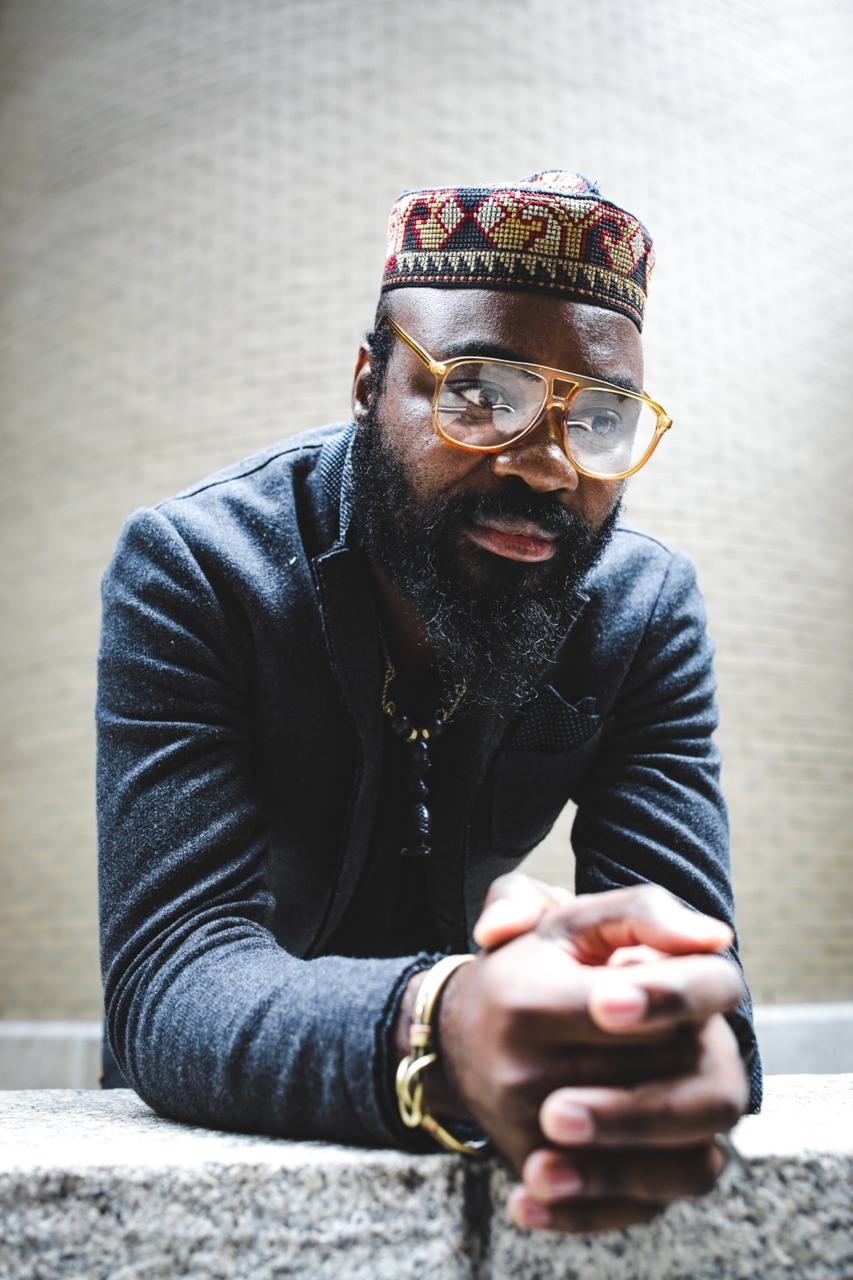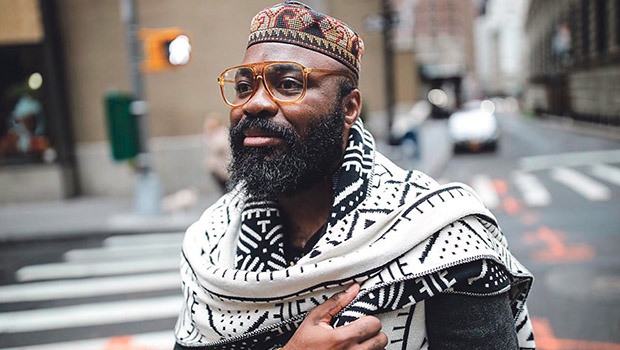
With the world in the grips of Covid-19, you might be in need of a little breather, a moment of solace. Phumlani S Langa speaks to musical healer Nduduzo Makhathini about his latest album, which provides just that and so much more.
JAZZ MUSIC
The most complex part of jazz is trying to understand it. Let’s be honest, there are times when it can sound like horns and drums clanking around haphazardly.
Your ear might find reprieve in a short melodic burst in the madness that soon disappears only to be replaced by more wonky improv.
What a shame it is to be locked out of jazz without being able to hear the language of the instrumentation. That is what it boils down to, almost in the same way you first reacted to hearing an offbeat rapper and it made sense, this didn’t happen for you right off the bat.
Although jazz culture forms the backbone of most genres, the youth doesn’t react to it in the same way they do to its derivatives.
Thandiswa Mazwai once told #Trending that she was fully aware that her jazz album did not perform as well as her other work and this concerned her. African jazz has easily been one of our best exports, with the isicathamiya sensation that is Ladysmith Black Mambazo.
Yet somehow this genre has receded from the limelight and this might very well be for the best. God bless hip-hop, but the closer we’ve allowed outsiders to it, the more tarnished it becomes with each passing day.
The African jazz fraternity of “bras” and “sis” protect this genre and shelter it from commercial dilution.
Perhaps the old guard is a bit guarded but, through this, a new generation of jazz musicians who embody the old spirit of this music has taken the reins.
Live from lockdown
But few jazz artists have made themselves felt more than Nduduzo Makhathini. He released Modes of Communication: Letters from the Underworlds on April 3 and it has become a healing listen in this time of the Covid-19 coronavirus.
Speaking to us from the safety of his home in the Eastern Cape, where he is observing lockdown, the bearded shaman of the keys filled us in on how he’s doing and what went into creating this album.
“I’m thinking about many things currently. One major thought is of healing and how we move towards it. An entire human project has been hijacked by this [coronavirus] pandemic and, the question is, do we find other options or stick to what we know?”
Musical healer Nduduzo Makhathini (@nduduzo_m) chats to @Pen_Pusha_P this week about his latest album Modes of Communication: Letters from the Underworlds.
— City Press (@City_Press) April 11, 2020
Read the interview in City Press this Sunday.
For now enjoy this exclusive, beautiful set to help you heal during lockdown pic.twitter.com/hgx7xdpFGa
Makhathini, the head of the music department at Fort Hare University in the Eastern Cape, said the commercial success of the album was a far-off second to his main focus.
This project is a vessel of communication between the ancestors and us.
“It focuses on providing access to a portal for transcendence where everything is free. Understood in a complete way, it is a bridge to a utopian home.”
Makhathini said: “I have learnt that it’s only my body, and perhaps my mind, that is caught by this lockdown, but the work is taking place at a metaphysical level. In this sense, post-lockdown for me doesn’t suggest a making-up period but a continued evolution.”
Nduduzo Makhathini: Medicinal Music
Modes of Communication: Letters from the Underworlds
4/5
“In the broadest sense, this work interrogates notions of African cosmology in early histories. It poses questions about how our earlier ancestors knew and communicated to their gods.”
So said Nduduzo Makhathini about his new 11-track album that gives you an hour and 15 minutes of organic radiation.
His letters of sound begins with Yehlisan’uMoya, a soulful plea to the heavens to let the spirit come down.
A voice melodiously beckons as the horn section of his band, tenor saxophonist Linda Sikhakhane and trumpeter Ndabo Zulu own the space for most of the track.
Saziwa Nguwe shows how Makhathini is able to orchestrate cinematic imagery with his sound while making use of notes that are distinctly South African.
It’s an almost Sophiatown-era ballad with sombre harmonies and sweet sentimentality.
He immediately elevates the tempo and somehow it makes sense. His fingers glide over the ivories almost as if he’s competing with his drummer for the rights to the refrain.
Their synchronised battle makes way for a series of solos on a seven-minute song that will easily have you wanting to try for 14.
He explores the crossroads between Christianity and African tradition on Isithunywa.
It begins with three minutes of gentle music, soothing sounds that then veer off towards perfectly frazzled instrumentation.
This is what eight albums worth of experience should feel like. Something about it is purifying and this is clear on the splintered Umlotha. He transitions in and out of a couple of suites in what could be the record’s cut.
He said: “I think it’s in the memory of the sonics themselves in which healing is found. It’s not an invention but a given. Now the question becomes, as an artist, how do you open up to this power? Personally, I had to consider the gift of ubungoma [a student learning to be a sangoma]. This is to say that, first and foremost, I am a healer and I am gifted with sound as an outlet.”
Shine brings about the bottom end of the album. The piano and double bass are more pronounced, although the song is still driven by the horns. The saxophone squeals in a beautifully painful way as the drums dart about the undertones, fading and re-emerging.
On Indawu he remembers the teachings of his mentor, jazz pianist Bheki Mseleku, who believed in a musical afterlife, a notion with which he concurs.
This is quite the debut to release on the legendary Blue Note Records, famed for signing such talent as Herbie Hancock; Thelonious Monk; and a personal hero of Makhatini’s, John Coltrane.
He believes the man to be a mystic who still lives in his art.
An idea that rings true for him as this album will live on, unscathed by time, as a monument to the modern era of jazz.




 Publications
Publications
 Partners
Partners










